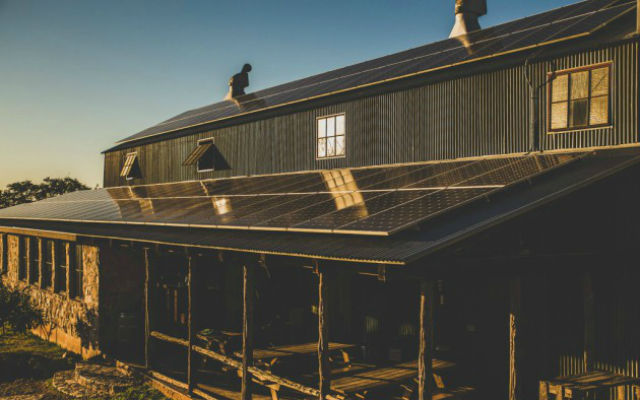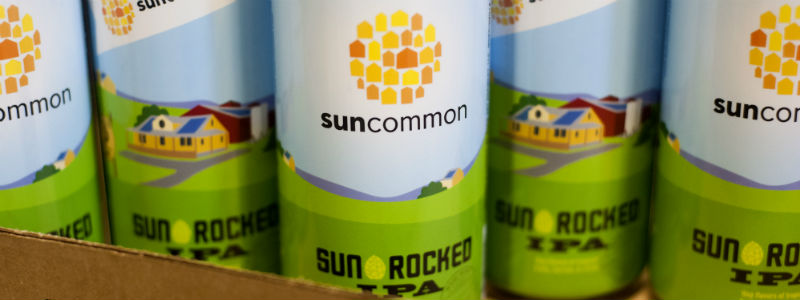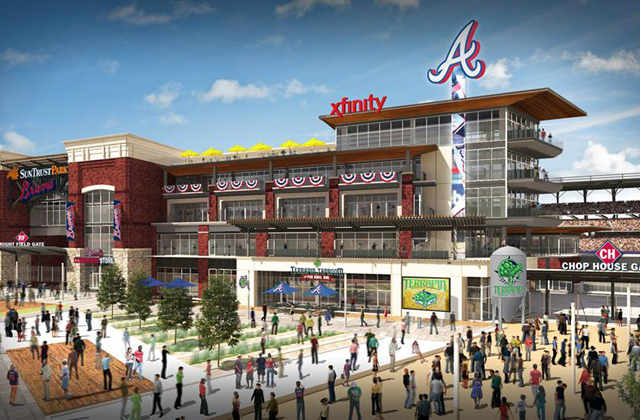
Matt Nadeau got into the craft brew industry 20 years ago because he said he is an independent person that wanted to make his own consumables and live as much as possible on his own accord.
That meant making beer, growing food in a garden, hunting and fishing and shelter (he built a four-season addition to his home as well).
“I do as much for myself as I can, I enjoy the challenge and it is the way I was brought up,” said the co-founder of Rock Art Brewery in Morrisville, Vermont. “It fulfills the saying, ‘you can do whatever you put your mind to.’ Now I can add power to that list.”
Rock Art unveiled Vermont’s first solar-powered beer, Sun Rocked IPA, as a toast to the 20-year-old brewery reaching a new milestone: going solar.
SunCommon helped Rock Art become the first Vermont brewery to fully offset its power needs with a 200-panel rooftop solar array.
“Beer brewing and packaging uses a lot of energy. We’re always looking for ways to reduce our environmental impact and solar was a perfect fit,” Nadeau said. “We can run our machinery on the sun – why not?”
To celebrate going solar the 4,000-barrel output facility brewed up a Sun Rocked IPA with tropical fruit, berries and citrus flavors.
“Everything that summer sunshine represents,” Nadeau said.
“Rock Art Brewery and SunCommon’s values are so aligned – this was an obvious pairing,” said Mike McCarthy, Solar Project Consultant for SunCommon. “Businesses are always looking for ways to reduce their cost, and they can’t get away from their power bill. By going solar, they’ve turned a significant monthly expense into an investment in their business. A win-win.”
Rock Art wasn’t the only ones to celebrate solar power. Recently, Austin, Texas’ Jester King activated a new, 78-kilowatt solar power system, which is one of the larger systems in central Texas.
“We have three arrays of panels that cover most of our approximately 11,000-square-foot roof,” wrote Jester King founder Jeffrey Stuffings in a newsletter. “The arrays are oriented in different directions to catch solar energy throughout the whole day. This means that on a sunny day, the brewery can run 100-percent off of solar power, as well as send excess power back to the grid.”
Emily McManamy of SunCommon said that businesses are always looking for ways to reduce cost, yet can’t get away from a power bill.
“It hits their bottom line month after month after month,” she said. “By going solar, breweries have turned a significant monthly expense into an investment in their business. A win-win. A brewery’s roof is a valuable, untapped asset. Why not put that roof to work with solar?”
Nadeau said he feels the energy is given to us free every day the sun “rises”, cloudy or not.
“We have the technology to harness that energy and use it to power large motors, fans, lights, computers, air conditioners and cars,” he said. “Assuming the net energy needed to make, ship, and install the system is much less than the energy produced, my question would be in return, why not do it? As long as you feel confident that your business will be around long enough to pay the installation cost back.”
Nadeau feels that craft beer consumers, especially the locals to the brewery, want to know all about the products they are enjoying.
“They want to know the businesses they choose to support and also support that community,” he said. “They know us, they know what we stand for and now they know that we are using the sun for our electricity. We are doing what we can when we can. We are fortunate to be successful in our 20 years as a brewery and we can take steps that we want to fulfill our life goals.”
Solar energy at Jester King is the most recent step in making the brewery more sustainable, but Stuffing said there is still a long way to go.
“For instance, we still need to develop the ability to catch our own rainwater, treat our wastewater for irrigation, and power our boiler off of biofuels and/or brewery waste,” he said. “In the years ahead, we will continue to make improvements that will ultimately make us a truly sustainable brewery.”






Be the first to comment